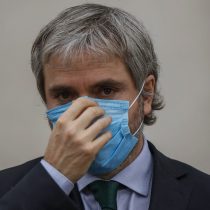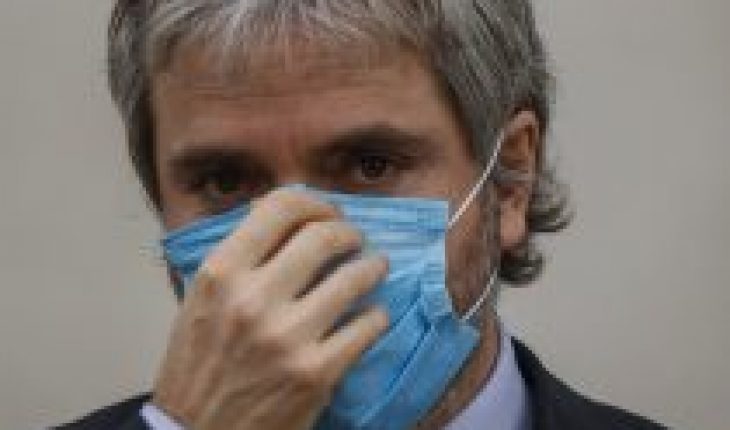
The waters are more than revolted in officialism after Chile’s vote approval We go from the reform that allows the withdrawal of funds from the AFP. Proof of this is the statements made from the ministers of the political committee of La Moneda, who far from trying to grit cold cloths to the controversy, have only managed to keep the tension alive.
While the Government took the lead and yesterday announced that it will propose a “new deal” to the parties in the sector to ensure a more fluid relationship, against any forecast, last night it notified the suspension of the Political Committee on Mondays “until further notice.”
During the morning, the statements of ministers were in that line, without any tone of self-criticism. The holder of Hacienda Ignacio Briones emphasized that within Chile We are “we have a situation of disorder” and that a “clear political problem” has been generated, while his colleague from the General Secretariat of the Presidency, Claudio Alvarado, said that the expanded political committee is not giving “results” and that is why they have to review the processes in order to resume them.
Following this strategy of standing in his position, Interior Minister Gonzalo Blumel accused sections of “populism” of “populism”, noting that “more than a crisis of governance is a crisis of convictions.”
“What is happening is a crisis of convictions, in the sense of the popular, what is on social media is what is in charge (…) in parliament that was deso. When that happens populism comes, and what happens is that we have criticized that populism is on the left, but now it seems that it has also begun to enter parliamentarians in our sector,” he told T13Radio.
Referring to the MPs who voted in favour of the idea of legislating the draft withdrawal of funds from the AFPs (9 RN and 4 from the UDI), Blumel even augured the possibility of splits within the official coalition, speaking of “the need to convey that, in some cases, there will be parliamentarians who will not be , and that they themselves may make the legitimate decision to sideline the coalition.”
In that context, he issued a warning: “We have to transparent reality, maybe we will have a slightly smaller, narrower coalition, but we wait with a more cohesive work, with much greater conviction and with the ability to set common positions around the ideas that animate the centre-right, and that is what has weakened in the last time.”
The warnings to the parliamentarians who voted in favour of the draft withdrawal of funds were also reinforced by Minister Briones, who noted on Radio Pauta that “a clear political problem has arisen, a problem for which parliamentarians will have to take responsibility for their action, because finally voting against the government, voting something that was so substantive for the coalition , it’s not neutral, it’s not something that can happen as one more thing, it’s a relevant political signal.”
In this context, Evópoli – the party of Ministers Blumel and Briones and the only one from Chile Vamos that did not have members to vote in favour of the controversial project – quoted an extraordinary political committee by Friday afternoon to discuss the official crisis. Asked by this quote, Blumel said: “When the wind blows harder you have to squeeze your teeth, the ropes and sail closer than ever. I trust that Evópoli will bet on unity.”
Monday meetings
Regarding relations within officialism, the minister of the Interior noted that coordination “worked very well as we were opposition and, paradoxically, when we were government was lost,” and therefore justified the decision to suspend Monday’s political committees “transitionally.” “Traditional coordination schemes, which are 19th-century, are not taking effect,” he acknowledged.
In this line, he stated that “we’re going to stop for a while to define how we’re going to keep working, we’re going to have to define a new coordination of the work strategy (…) We’re going to have to work differently with the coalition, we have to build the strategy,” he said, adding that “it’s key that we can set common positions.”





